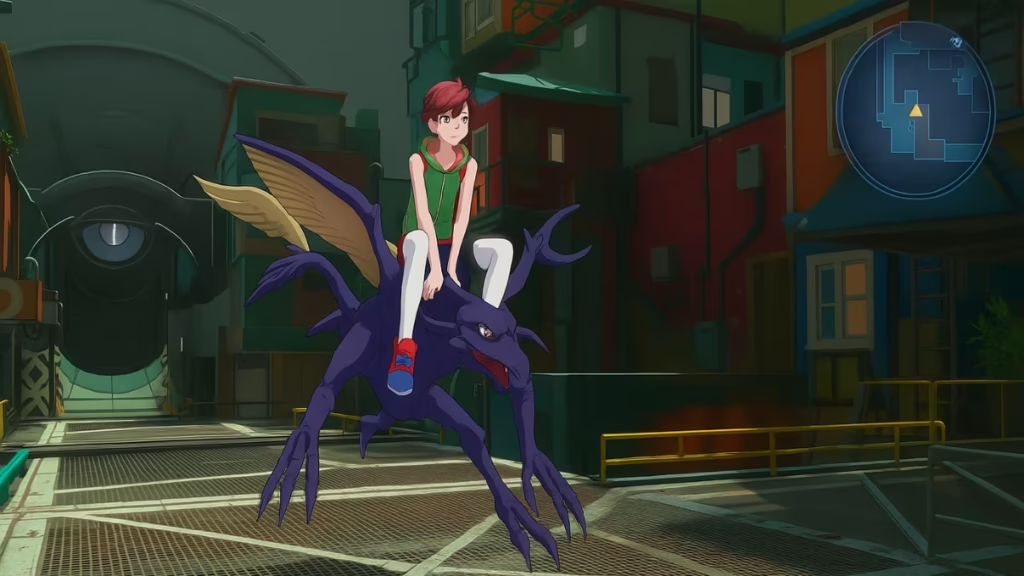One of the systems that sets Digimon Story: Time Stranger apart from other monster-raising RPGs is its personality mechanic. While Digivolutions and skills define how powerful your partners can become, their personalities shape how they grow, which stats develop fastest, and even what unique perks they can unlock. Mastering this system is crucial if you want a balanced team that excels in every role.

The Four Core Personality Types
Every Digimon begins with one of four main personality groups. These determine the primary stat that grows faster as they level up:
- Philanthropy (SPI) – Best for healers, since Spirit boosts the effectiveness of recovery and support skills.
- Valor (ATK) – Suited for physical attackers who rely on raw power.
- Wisdom (INT) – The natural choice for magic attackers and spell-focused Digimon.
- Amicability (DEF) – Great for tanks, since it emphasizes defensive growth.
These broad groups lay the foundation, but they’re only the first layer of customization.
Subtypes and Stat Growth
Each of the four groups contains four sub-personalities, giving a total of 16. These add a second stat growth boost on top of the primary one, allowing you to fine-tune your Digimon’s role.
Philanthropy (+SPI)
- Adoring: +DEF
- Devoted: +INT
- Tolerant: +SP
- Overprotective: +HP
Valor (+ATK)
- Zealous: +SPD
- Brave: +SP
- Reckless: +HP
- Daring: +DEF
Wisdom (+INT)
- Enlightened: +SP
- Sly: +HP
- Astute: +SPD
- Strategic: +SPI
Amicability (+DEF)
- Opportunistic: +SPI
- Friendly: +ATK
- Sociable: +SP
- Compassionate: +HP
With no negative modifiers, every combination provides bonuses. For example, a Zealous Valor Digimon gains faster ATK and SPD growth, making it a strong physical striker.
Personality Skills
Beyond stats, each subtype is tied to unique Personality Skills—special passive perks that can activate under certain conditions. There are 32 possible Personality Skills in the game, and each Digimon can hold one at a time.
- Example: The Astute subtype may unlock Steadfast Emotion, which raises INT when HP falls below 90%. The lower the health, the stronger the buff.
These skills can make or break strategies, especially in tougher battles, so experimenting with subtypes isn’t just about numbers—it’s about unlocking game-changing abilities.
How to Influence Personality
At first, a Digimon’s personality is semi-random upon conversion (creation). Certain species lean toward specific groups—for instance, some monsters rarely appear with Valor traits—but you’re never locked in.
There are two main ways to shift personalities:
1. Conversations in the Field
While exploring, your active Digimon will occasionally ask questions. Your responses can nudge their personality diagonally across the quadrant chart. Each answer is marked with a symbol representing one of the four core groups (Heart for Philanthropy, Sun for Valor, Infinity for Wisdom, and a unique symbol for Amicability).
- Choose an answer with a symbol → personality may shift.
- Choose a neutral answer → personality remains unchanged.
2. DigiFarm Training
The In-Between Theater’s DigiFarm offers more controlled changes. By assigning Digimon to different training sets, you boost certain stats while shifting their personality in specific directions. For example:
- Sauna A (HP training): Shifts toward Heart (right on the chart).
- Classroom A (INT training): Shifts toward Understanding (down and left).
By chaining sessions together, you can deliberately move from one subtype to another, even across quadrants.
Why Personalities Are Key to Team Building
Understanding and managing personalities is more than a side system:
- Optimized Growth: A healer with Philanthropy + Devoted grows SPI and INT faster, making recovery skills and magic more effective.
- Strategic Flexibility: Swapping personalities allows you to unlock a desired Personality Skill, then shift back to another subtype while keeping the skill.
- Evolution Paths: Some Digivolutions are tied to specific personalities, adding another layer of planning.
With a bit of patience, you can craft a squad where every Digimon not only fits their combat role but also carries unique skills that elevate your whole team.
See also: Digimon Story Time Stranger Review – Worth the Wait?
The personality system in Digimon Story: Time Stranger is both a growth mechanic and a strategic tool. By learning how the four quadrants and their subtypes interact, you’ll be able to raise Digimon that excel in exactly the roles you need—whether it’s a high-speed physical attacker, a sturdy defender, or a magic powerhouse.
Take the time to experiment with conversations, DigiFarm training, and skill management, and you’ll uncover just how deep this system runs. For a game that’s all about bonds with digital partners, personalities ensure every Digimon feels truly unique. Play Now!

